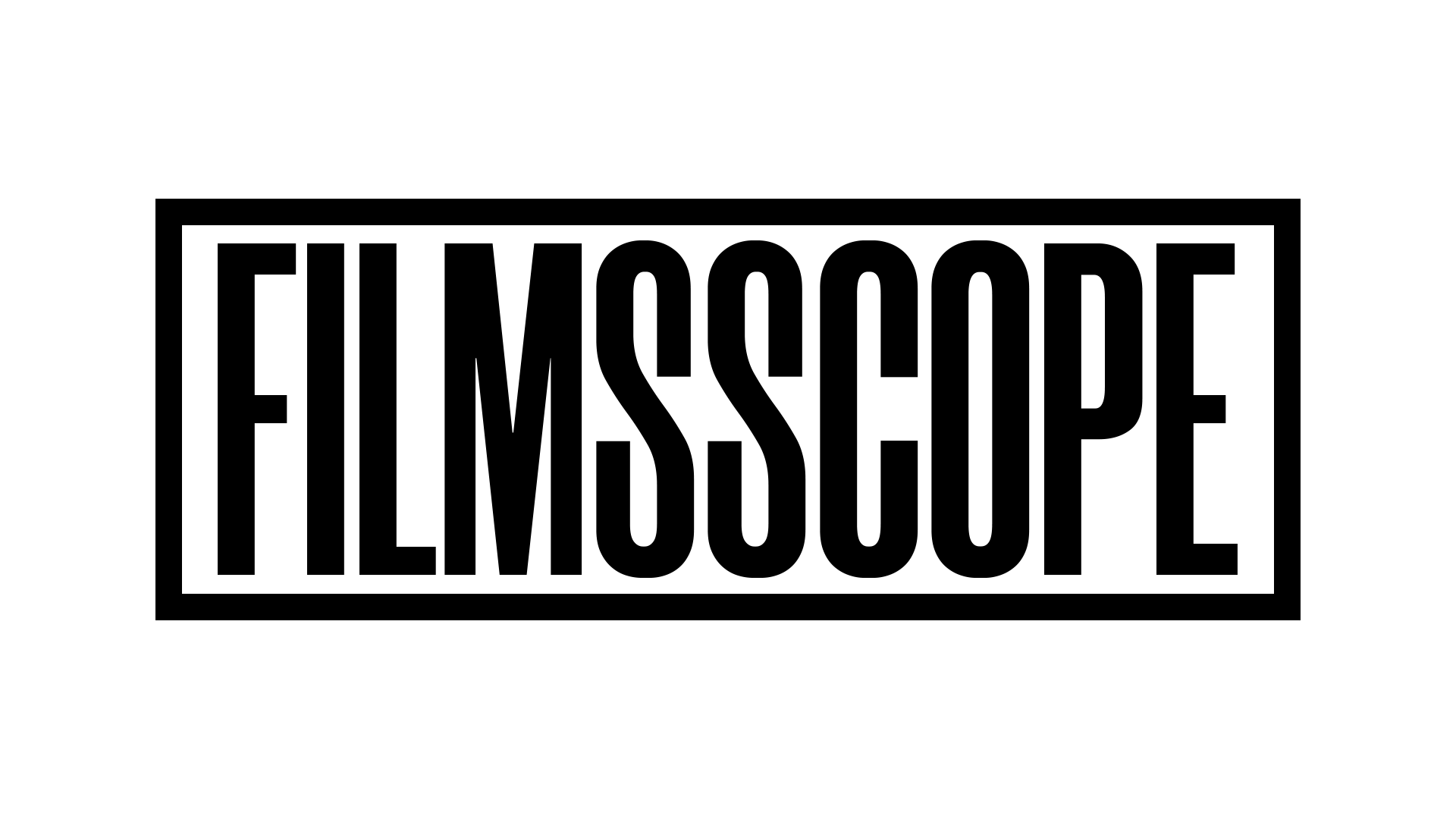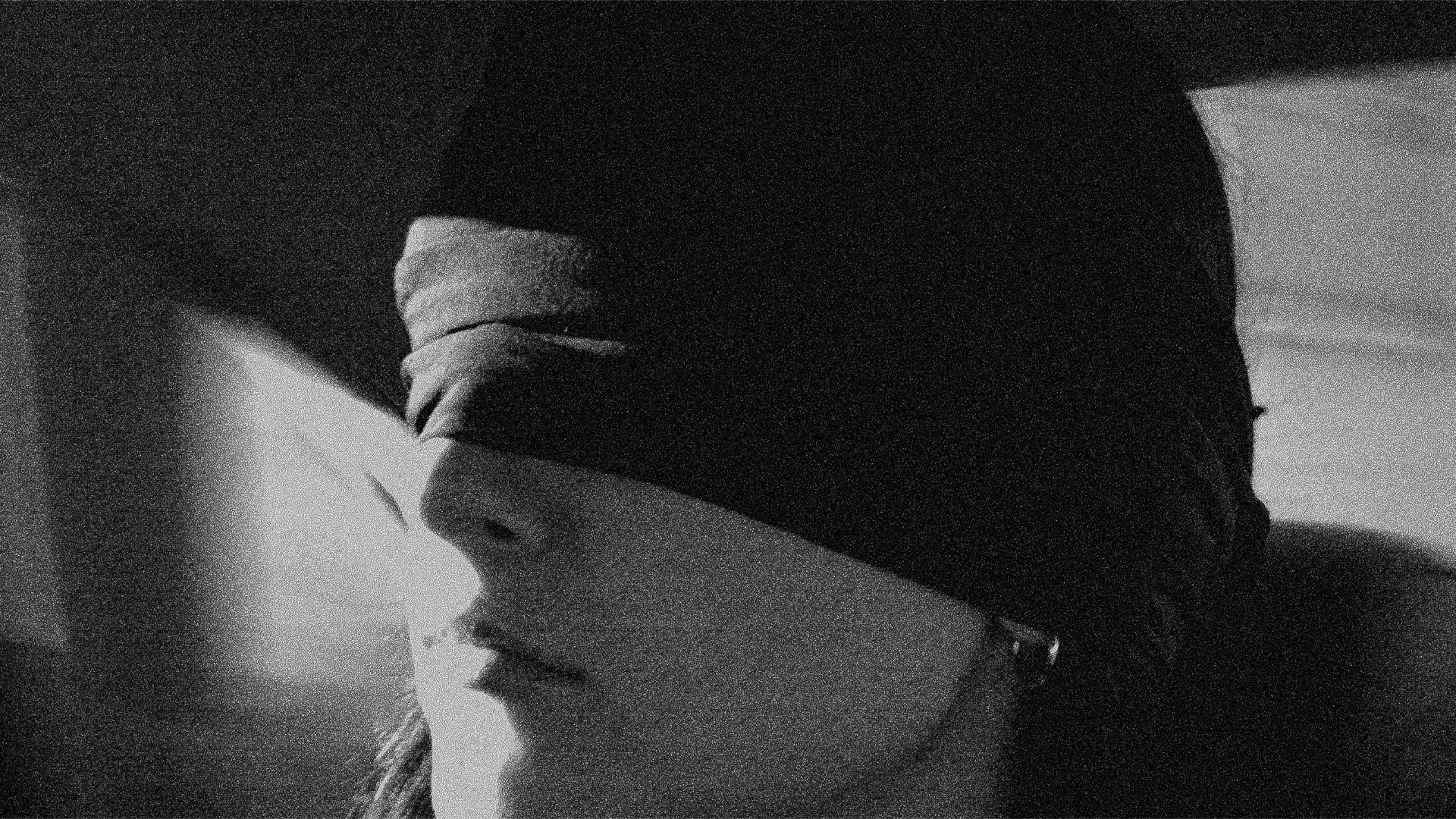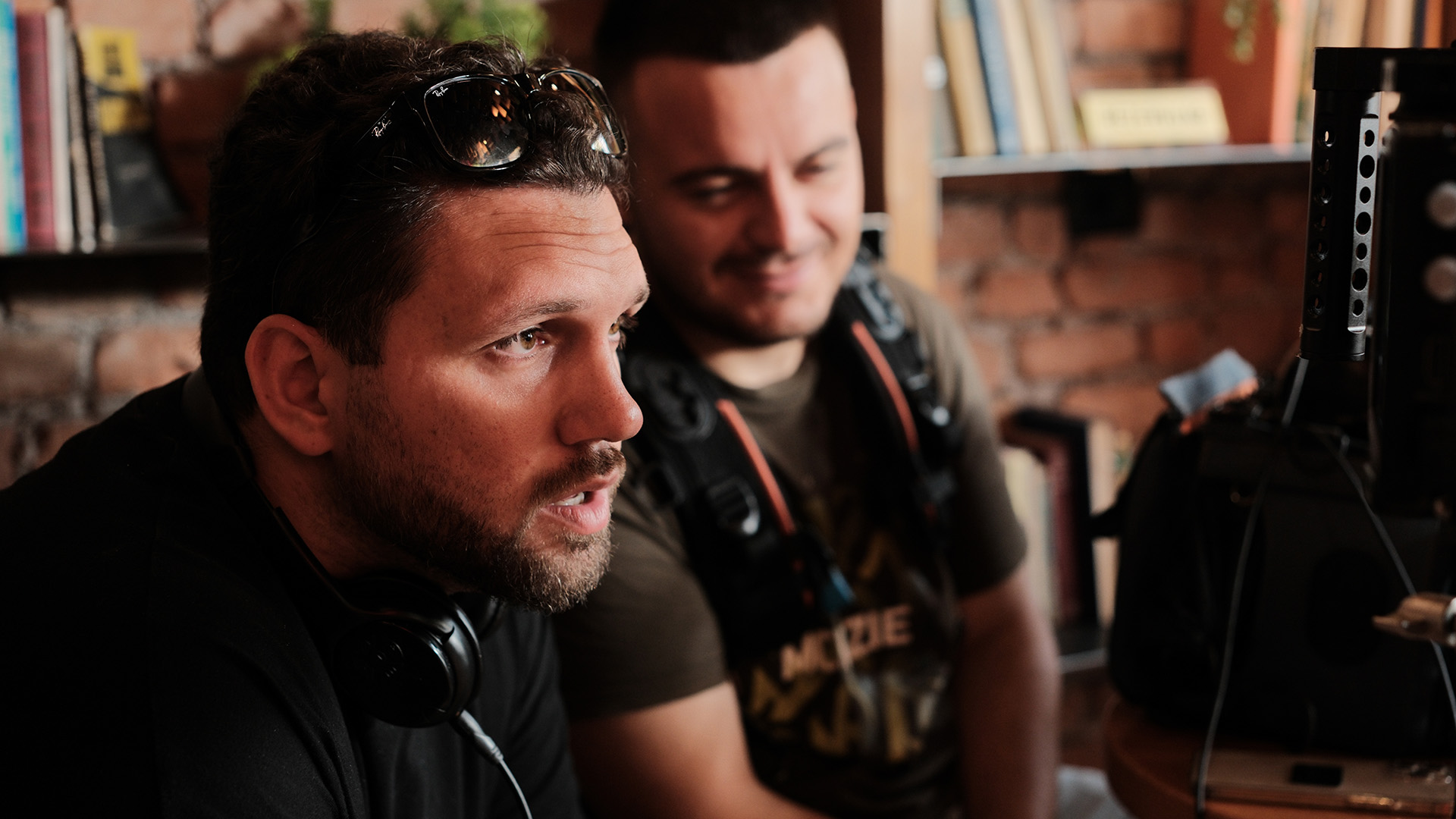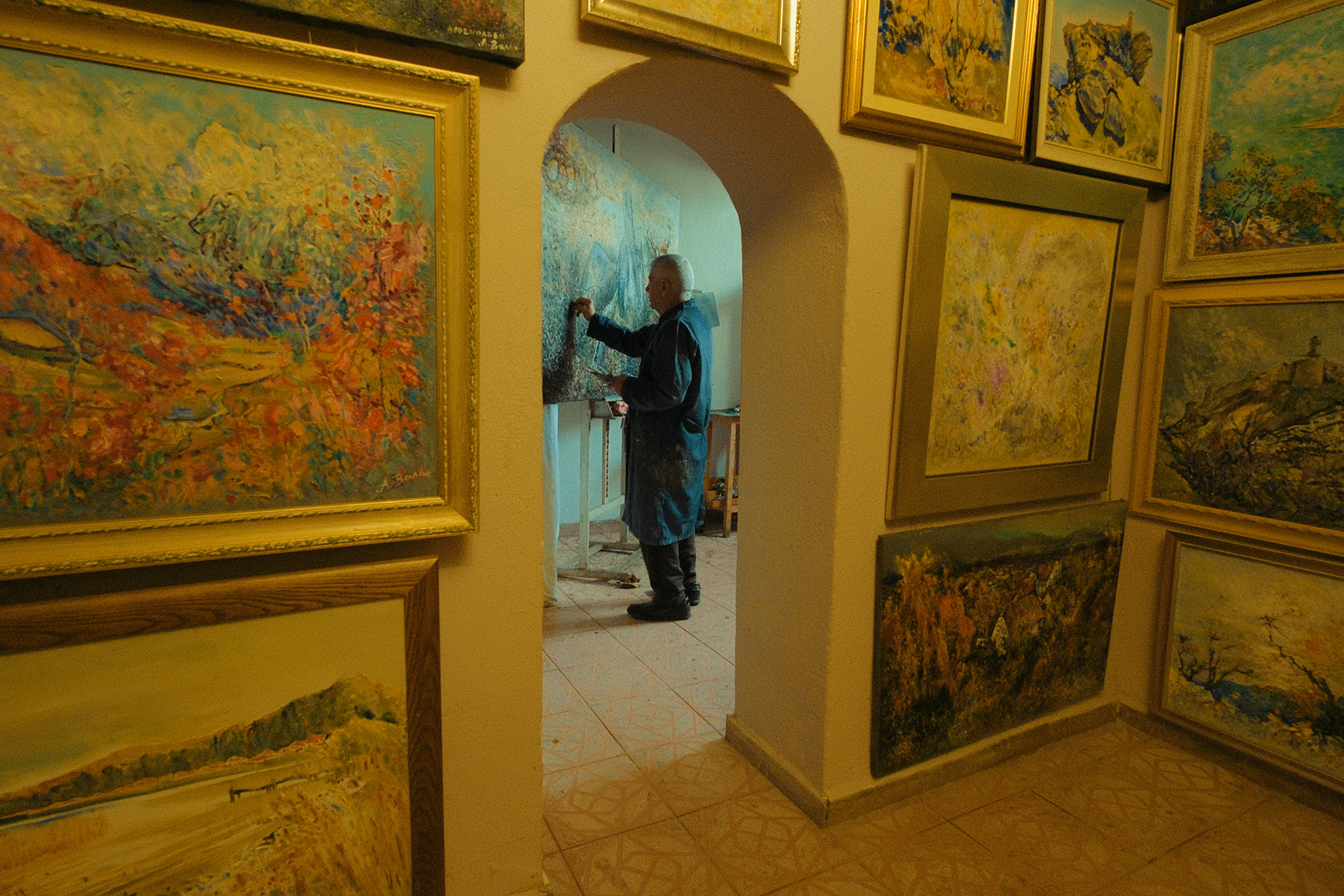
The Upcoming Documentary: A Portrait of Arben Basha
FILMSSCOPE’s latest documentary, directed by Enriko Hamzaj, turns its lens toward one of Albania’s most accomplished and quietly influential artists: painter and veteran film production designer Arben Basha. The film is completed and preparing to launch its festival journey beginning in October 2025 and continuing through the season. Below is an inside look at the story behind the documentary, the artist at its center, and the history it seeks to preserve.
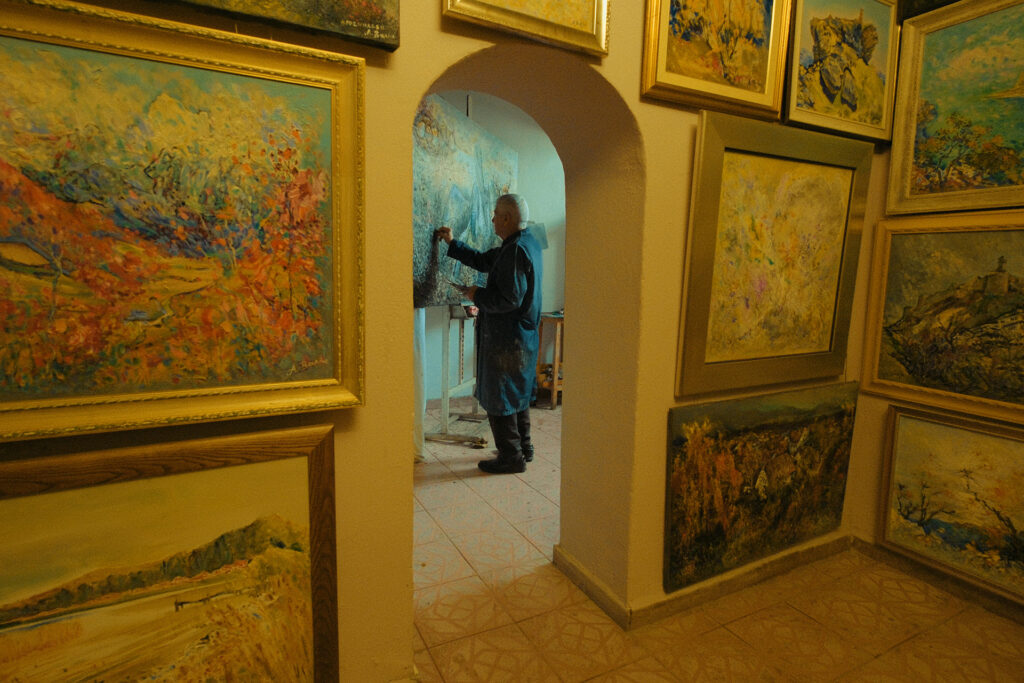
Who Is Arben Basha?
Born on January 1, 1947, Arben Basha is widely regarded as one of the most experienced and artistically driven production designers in Albanian cinema. Over the course of a decades-spanning career, he contributed his visual imagination to more than thirty films, shaping the look and emotional tone of some of the country’s most important screen works. Parallel to his film career, Basha has built a deeply personal and expressive body of painting, cementing his place not only within the Albanian film industry but also within the wider visual arts culture of the Balkans.
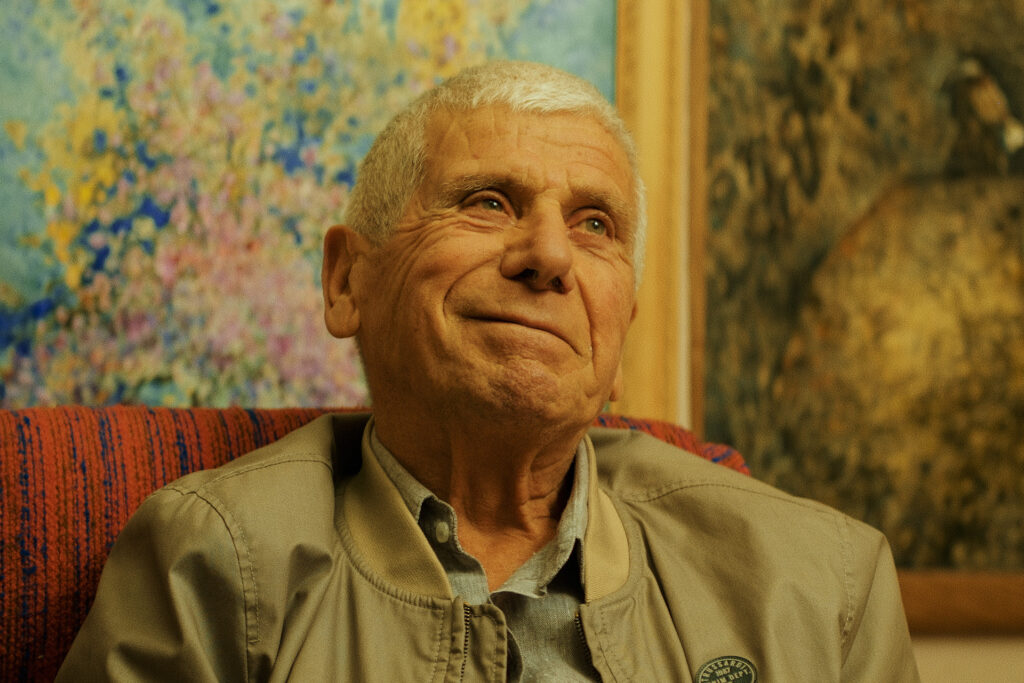
A Life in Images: Film and Painting Intertwined.
The documentary approaches Basha’s story as a dual creative journey, one unfolding on film sets and another evolving on canvas. Rather than treating these as separate careers, the film draws out the ways in which Basha’s painterly eye informed his production design, and how the discipline of large-scale film work influenced the structure, scale, and atmosphere of his paintings. In doing so, it reveals an artist who never stopped translating lived experience into visual form, whether under the constraints of a film production schedule or alone in the studio.
Landmark Contributions to Albanian Cinema.
Arben Basha’s filmography runs through key works in Albania’s cinematic history. Among the titles explored in the documentary are:
Nëntori i Dytë (Second November) – A historically rooted film whose world-building required sensitivity to period detail and national memory.
Liri a Vdekje (Freedom or Death) – A production that demanded a bold, emotionally charged design language to support its themes of resistance and sacrifice.
Dasma e Sakos (Sako’s Wedding) – A visually rich film whose production design balanced authenticity with expressive storytelling; it becomes a special focal point in the documentary (more below).
These films helped define eras of Albanian filmmaking, and Basha’s work behind the scenes contributed powerfully to their lasting resonance.
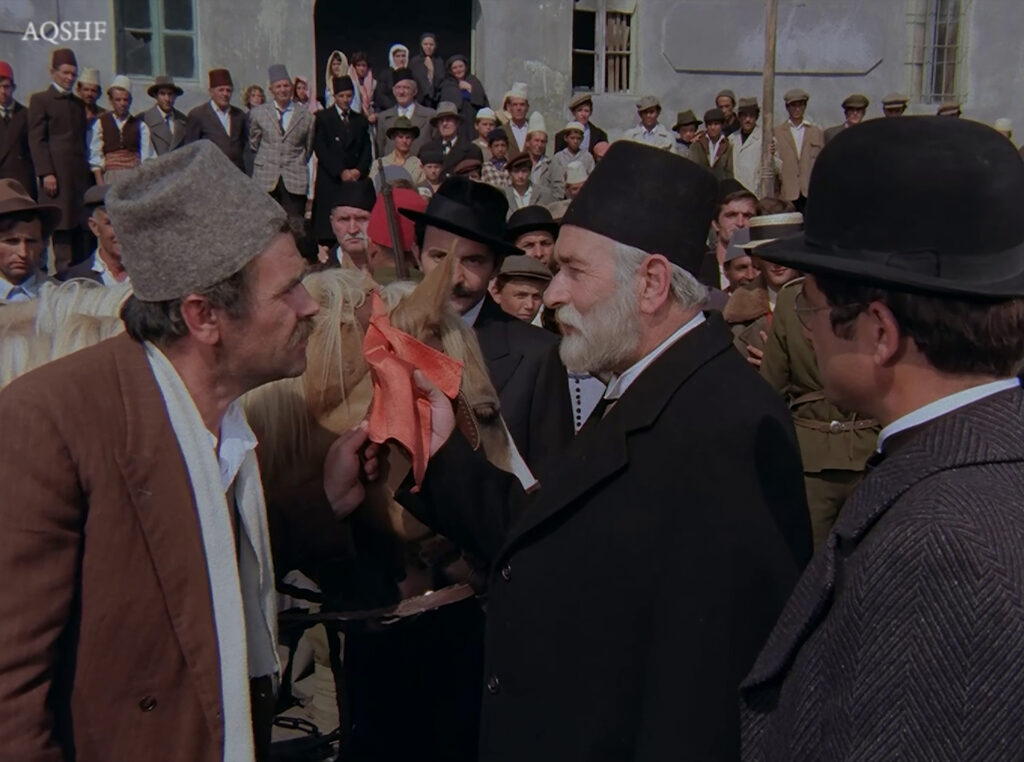
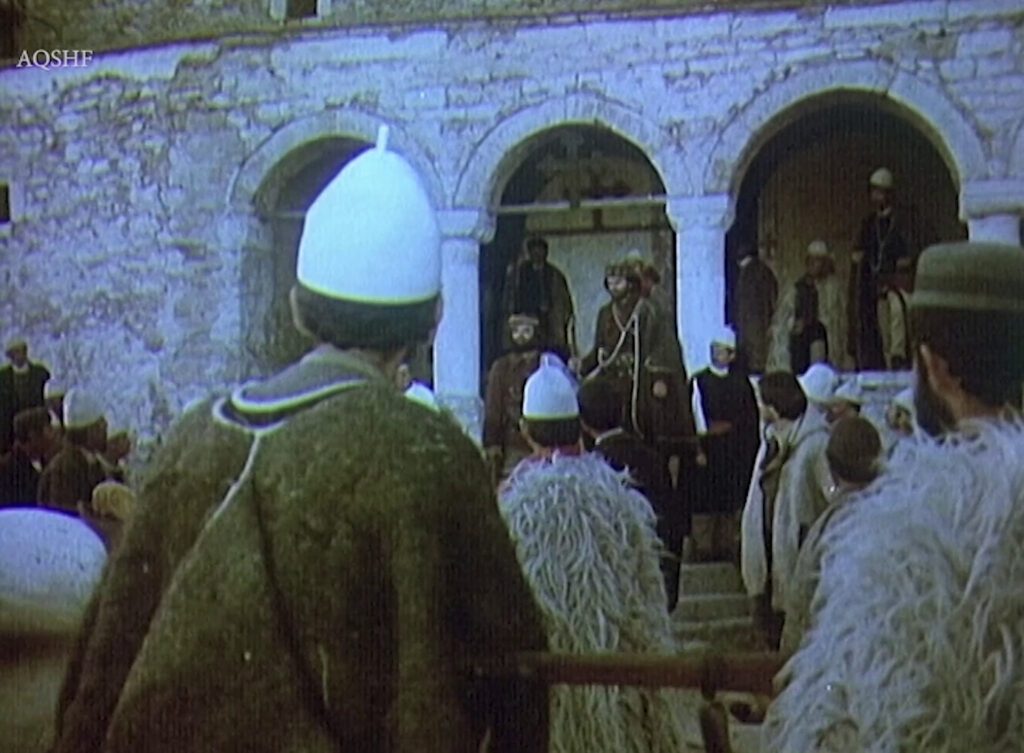
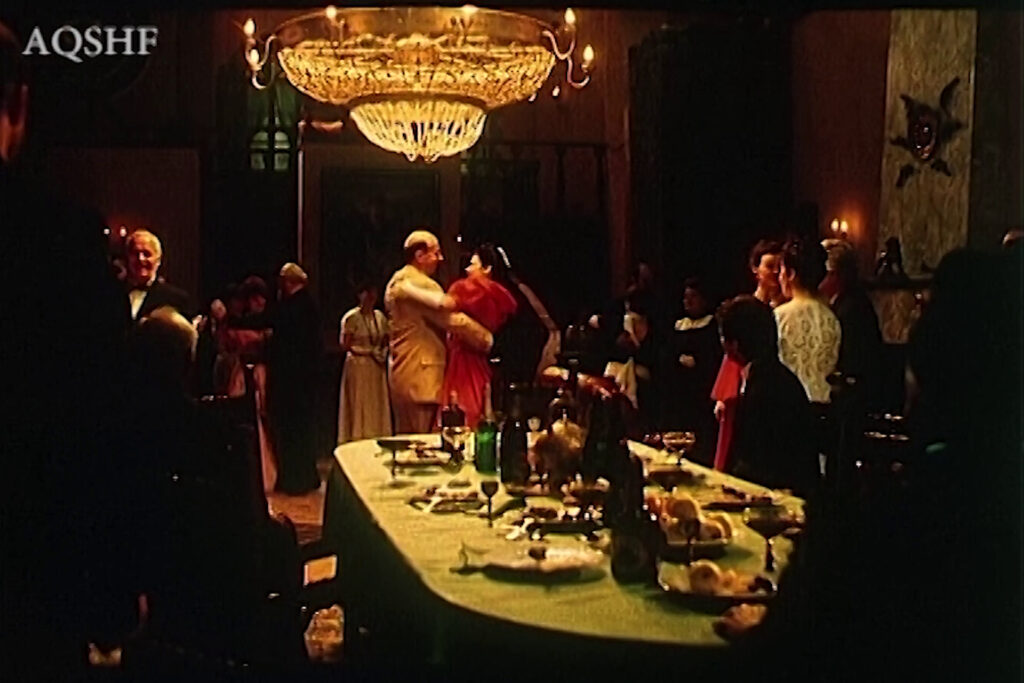
Personal History, National History.
At its core, the film is a portrait of a man shaped by time, place, and responsibility, an artist navigating Albania’s political, social, and cultural shifts across decades. Basha’s personal life is woven throughout: family stories, early creative influences, artistic frustrations, and an evolving sense of identity as Albania changed around him. The documentary resists nostalgia; instead, it explores how memory and material labor (paint, wood, fabric, props, constructed spaces) become a record of a country in motion.
Emigration, Distance, and the Next Generation.
One of the most emotionally open threads in the documentary is Basha’s perspective on youth emigration from Albania. He speaks candidly about watching new generations seek opportunity abroad, an experience close to home, as his own children have built their lives outside Albania, in Austria. The film allows his reflections to unfold slowly: pride, longing, realism, and the complicated hope that art can travel even when families are scattered.
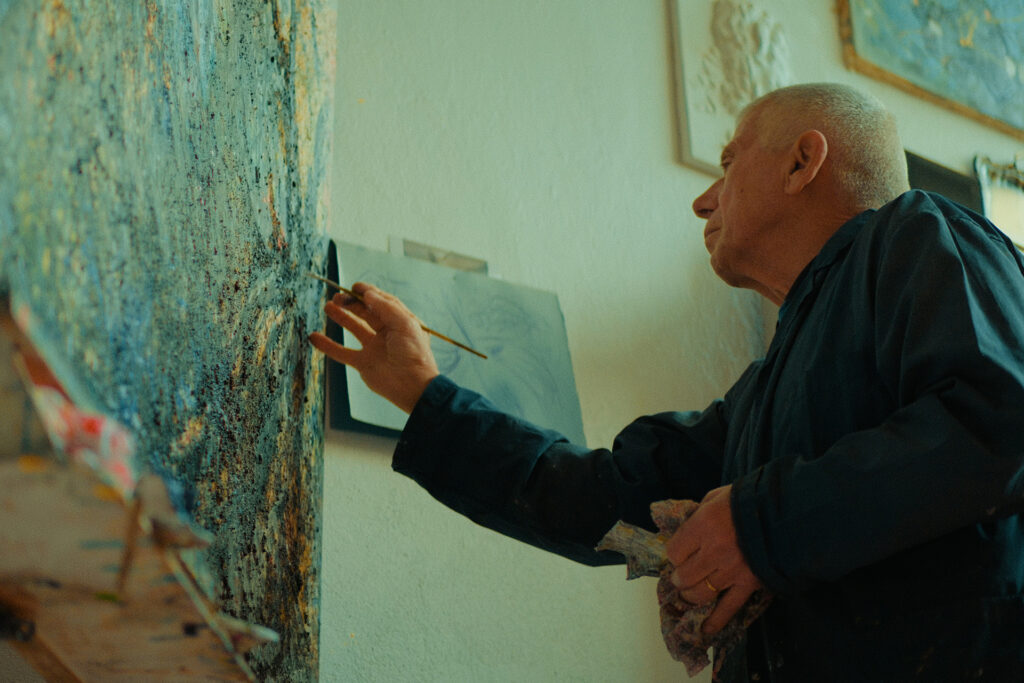
Never-Before-Seen Footage: Dasma e Sakos (1997, Gjirokastër).
A rare archival discovery gives the documentary a unique historical value. Viewers will see exclusive behind-the-scenes material from the 1997 production of Dasma e Sakos, shot on location in the historic city of Gjirokastër. These materials set-build moments, design adjustments, candid crew interactions have never before been made public. For students of film craft, production design, and Albanian cinema history, this sequence alone is reason to watch.
The documentary is completed and is scheduled to begin its festival circulation in October 2025, with submissions rolling out to select documentary, art, and heritage-focused film festivals internationally. Additional screenings, broadcast opportunities, and educational partnerships will be announced as confirmations come in.
Filmsscope will share festival dates, trailer drops, and distribution news through our blog and mailing list. If you’d like to be notified when the film screens near you, or if you represent a festival, museum, gallery, or broadcaster interested in programming the documentary, please reach out. We welcome collaboration.

